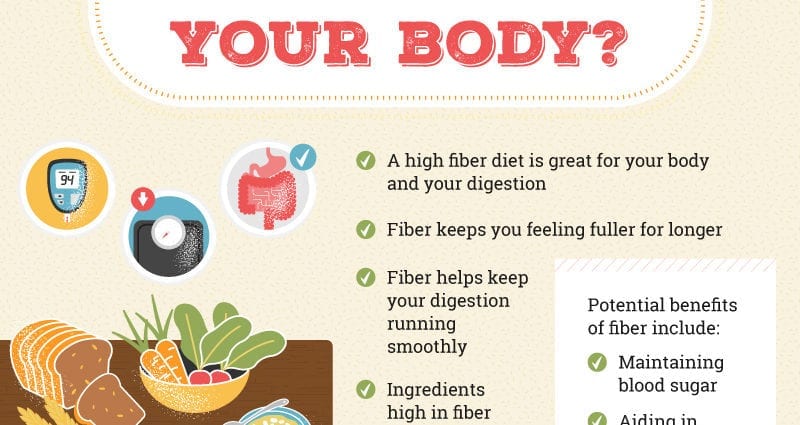Fiber is the fiber that forms the basis of plants. They are found in leaves, stems, roots, tubers, fruits.
Fiber is not digested by the digestive enzymes of the human body, but it absorbs a large amount of water and increases in volume, which gives us a feeling of fullness and saves us from overeating, and in addition, it helps food pass through the intestinal tract, facilitating the digestion process.
There are two types of fiber: soluble and insoluble. Soluble, naturally dissolves in water as opposed to insoluble. This means that soluble fiber changes its shape as it passes through the intestinal tract: it absorbs fluid, absorbs bacteria, and ultimately becomes jelly-like. Soluble fiber interferes with the rapid absorption of glucose in the small intestine, protecting the body from sudden changes in blood sugar levels.
Insoluble fiber does not change its shape as it moves through the digestive system and tends to speed up the movement of food through the digestive tract. Due to the fact that food with its help leaves our body faster, we feel lighter, fresher, more energetic and healthier. By accelerating the release of toxic components from your diet, fiber helps to maintain optimal pH balance in the intestines, which in turn helps fight diseases such as bowel cancer.
Fiber is essential for the human body in order to help it cope with the digestion of meat, dairy products, refined oils and other toxic and heavy food for the body.
A diet high in fiber helps the body stabilize and maintain a healthy weight; lower cholesterol levels; balance blood sugar levels; maintains good gut health; regulates the chair.
In short, eating more fiber will help you be healthier and therefore prettier and happier.
Let me remind you that all vegetables, whole grains, roots, fruits and berries are a good source of fiber. Please note that refined foods lose fiber, so, for example, refined vegetable oil or sugar does not contain it. There is no fiber in animal products either.










